
|
"Controversy"
After signing his first record contract as a teenager, Prince learned the ropes of the stage and studio with impressive speed, and started pursuing a dual Master's in Shock Value and Media Manipulation. (DBW)
Recorded when Prince was only 19, he's already producing, writing (just one co-write on lyrics), and playing all the instruments. The arrangements are unremarkable light soul, all love songs, decent but ordinary, and his voice is pretty but doesn't hint at his later accomplishments. The single "Soft and Wet" starts to introduce his singular touch with synthesizers, and has his first sexual lyrics. The headbanger "I'm Yours" is the other standout tune, and "Just As Long As We're Together" combines some very corny lyrics with his first released one-man jam. The extremely low rating here is only to indicate how much stronger his later work is. (DBW)
Apparently the first record didn't sell as well as expected, and Prince was threatened with an outside producer if he didn't go more commercial. He rose to the challenge, crafting the tuneful "black radio" hits "I Wanna Be Your Lover" and "I Feel For You" - both intended for Patrice Rushen, who declined to record them. But far from being a soulless sell-out record, he actually expresses his distinctive personality far better than before, as well as his improved chops and versatility: he stretches into country-pop ("When We're Dancing Close And Slow") and hard rock ("Why You Wanna Treat Me So Bad?"). He also slips in a couple of "nasty" songs: the dance-funk "Sexy Dancer" and the way-uncool anti-dyke rocker "Bambi" (with incredible lead-rhythm guitar interplay). (DBW)
His first major work, these love songs, sex songs and pseudo-political anthems were originally recorded as demos, mostly at Prince's home. He then decided to release the demos rather than beautify the songs in an LA studio, paving the way for Rick James' "punk funk" movement. Lyrically he pushed the envelope to the extreme, with the incest-themed "Sister," concert favorite "Head" and the title track. But what's often overlooked here is the brilliant songwriting: every tune is memorable, particularly the classic "When You Were Mine" (since covered by everyone from country singers to Cyndi Lauper) and the hit "Uptown." And despite the stripped-down sound, he throws in some neat gimmicks, like the massively amplified guitar ending "Gotta Broken Heart Again." For the first time, Prince used other musicians: Matt Fink plays an interesting keyboard solo on "Head" while new band member Lisa Coleman speaks some of the track's more controversial lyrics. (DBW)
Not a dramatic leap forward, but a consistently enjoyable work. More confident in his new genre of minimalist funk (R&B hits "Controversy" and "Let's Work"), he also includes a gorgeous slow jam ("Do Me Baby), and turns to 50's style rock on "Jack U Off" and "Ronnie Talk To Russia." Determined to be taken seriously, Prince throws in numerous political and social references, from the devastating ("Sexuality") to the silly ("Ronnie Talk To Russia") to the bizarre ("Annie Christian," so underproduced it's downright disturbing). He even incorporates the Lord's Prayer into "Controversy," but despite all his heaviness he doesn't lose his sense of humor: check "Jack U Off" for confirmation. For those of you keeping score at home, the credits to this album mark the first time Prince started using "U" instead of "you." This year also saw Prince's first production for The Time. (DBW)
Prince's first entry in the girl group sweepstakes was no match for the Mary Jane Girls; there's not much of note here: besides the hit "Nasty Girl" the best tune is the one Prince didn't write, "He's So Dull" by former Revolution guitarist Dez Dickerson. (DBW)
His commercial breakthrough. This time around Prince dropped heavy guitars and focused on post-disco dance songs ("1999," "Delirious," "Let's Pretend We're Married") and the ballads "Little Red Corvette," and "International Lover" (with moving falsetto singing that got him a Grammy nomination). There's not much stylistic variety, but the tunes are terrific, the vocals are among his best ever, and the production keeps things from bogging down (listen to him pull out every trick at his disposal during "Lady Cab Driver," or the guitar solo on "Automatic"). At just over 70 minutes it wasn't an incredible value as a double album, but on one CD it's a must-have. (DBW)
"Baby I'm A Star"
Not content with making some of the most interesting R&B records of the era, Prince set his sights on film, chart-topping singles, and superstardom. Not to ruin the suspense, but he soon reached those three goals. (DBW)
Purple Rain (Prince & The Revolution: 1984) Enormously successful soundtrack to the extremely successful motion picture, making Prince a household name. This is also the record that got Tipper Gore to start the PMRC: the lyrics to "Darling Nikki" were too much for her. Working closely with a backing band (the Revolution) for the first time, he has distorted guitars, arena-rock anthems, funky calls for sexual abandon, angry love songs, spiritual redemption... what more could you want? It's divided among rock, dance and ballads, sometimes more than one at a time ("The Beautiful Ones"). His messianic tendencies get a bit out of control ("I Would Die 4 U") but are fun anyway, and he makes up for it with genre-bending lunacy like "Computer Blue." The #1 pop hits were "When Doves Cry" (a dance track with no bass line!) and the rocker "Let's Go Crazy," while the title guitar ballad peaked at #2. (DBW)
Apollonia 6 (Apollonia 6: 1984) Much more enjoyable than the Vanity 6 effort, and not because of Apollonia's vocal ability, which is almost nonexistent. The hit, "Sex Shooter," is solid, and two other tracks, the fast funk "A Million Miles" and midtempo love song "Some Kind Of Lover" are even better. (DBW)
The Glamorous Life (Sheila E.: 1984) Stick with the 12" single of the hit title track; there's nothing else on the record worth hearing. Sheila is a very good percussion player, but you'd never guess it from the material here ("Neon Rendezvous"). (DBW)
Around The World In A Day (Prince & The Revolution: 1985) Determined not to copy his past successes, Prince and the Revolution came up with a heavily orchestrated style, without the trademark drum effects and guitar distortion of the previous album. The result is some great pop ("Pop Life," "Raspberry Beret"), and some experimental numbers that miss (the percussion-laden "Tamborine") as often as they connect (the touching ballad "Condition Of The Heart"). Just so Purple Rainfans wouldn't be totally lost, there is some hard rock ("Paisley Park"), political pap ("America"), uplifting spirituality ("The Ladder"), and crotch-level spirituality ("Temptation," which marks Prince's first use of sax). (DBW)
Here Prince threw together half of The Time with Wendy's sister Susannah Melvoin and sax player Eric Leeds; the result is short of spectacular. This is the place to go if you want to hear the original version of "Nothing Compares 2 U," which later became a huge hit for Sinead O'Connor; otherwise, the only number of any interest here is the James Brown-inspired "Mutiny." (DBW)
Parade (Prince & The Revolution: 1986) The soundtrack to the unsuccessful film Under The Cherry Moon is an interesting mess: two of his funkiest songs ever ("Anotherloverholenyohead," "Girls & Boys") are layered full band productions, while the #1 single "Kiss" is one of the simplest arrangements he's ever done, and the ballad "Sometimes It Snows In April" is positively inspired. He does cover more ground stylistically than ever before. But too much of the album sounds like a movie soundtrack, with meandering instrumentals ("Venus De Milo"), period pieces (the schmaltzy "Do U Lie") and second-rate compositions ("Under The Cherry Moon," "I Wonder U"). The second, rather unsuccessful single was "Mountains." (DBW)
This double-album release silenced people like me who were wondering whether superstardom had made Prince lose his touch. He fired the Revolution and hit the studio by himself, putting together four sides that acknowledge all his musical influences while remaining uniquely his. Heavy funk ("Hot Thing"), gender bending ("If I Was Your Girlfriend"), a religious rock anthem to die for ("The Cross"), a lovely, complex ballad ("Adore," with perhaps his finest vocal performance). For good measure, he has plenty of music that's uncategorizable and absolutely irresistable ("The Ballad Of Dorothy Parker," "Forever In My Life," "Play In The Sunshine"). This record is rich in all the things that Prince is good at. The funky but slight live recording "It's Gonna Be A Beautiful Night" contains his first flirtation with rap. (DBW)
Prince's first take on jazz fusion is not terribly interesting; he just comes up with some chords and a riff, and lets band members solo uninspiredly for a while, and then goes on to the next tune. "6" is an effective funk jam; the rest mostly just drags. (DBW)
The best album by a Prince protege, partly because Jones has the best voice in the bunch (not counting Rosie Gaines, who was established before Prince ran into her). There is a fair amount of filler here, but the best songs ("For Love," "All Day All Night" featuring the Revolution) are terrific. For more information on this talented singer (who for a variety of reasons hasn't released a solo album since) see the fine unofficial fan site. (DBW)
Like the previous Madhouse effort, there's no real spark here, although he still puts together some decent hooks ("10," "13"). Apparently Eric Leeds and the other bandmembers had more input into these songs, but it doesn't help. (DBW)
Black Album (recorded 1987, released 1994) Scheduled to appear with no title or artist identification, then cancelled days before release, this became the most widely-discussed bootleg since Dylan's Basement Tapes. It's stripped-down funk, and fun to listen to, but it's easy to see why Prince didn't want to release it with his name on it: mostly party songs, recorded quickly, more characteristic of a Time album than of the intelligence and emotional range usually found on a Prince record. Finally issued to the public in 1994 as part of negotiations with Warner Bros, by which time everyone who cared already had the bootleg. (DBW)
This album apparently documents a spiritual rebirth. He reuses one track from the scrapped Black Album, the pretty ballad "When 2 R In Love." The disc is remarkable for the colossal number of interlocking melodic hooks throughout: the title track is the best example, but also see the single "Alphabet St.," and "Anna Stesia," a mood-altering masterpiece with dramatic changes in dynamics and an uplifting religious ending. Many of the melodic lines are in a different key than the rest of the song, a trick Prince apparently picked up from P-Funk. He also makes exciting, effective use of electronic percussion and keyboard effects on "Dance On." It's a solid work, where even the familiar-sounding tracks are entertaining ("I No," "Glam Slam," "I Wish U Heaven"). (DBW)
Did his widely-reported cash-flow problems prompt him to make such a mainstream, commercial album? I have no idea, but there's a lot of formula music here, both ballads ("The Arms Of Orion," "Scandalous") and uptempo pop ("Partyman," "Trust"). The man can put together professional, saleable product in his sleep, but usually he's also inspired and/or driven to be original; here he just takes the easy way out. There's just not much great music here, besides the cleverly-arranged rocker "Electric Chair" and the tuneful groove "Vicki Waiting," and the sample-drenched #1 hit "Batdance" is the only place he's really doing something new. (DBW)
The soundtrack to another unsuccessful movie; there's a lot of really good music here, but it's incoherent. About half the album is turned over to special guests including the Time, George Clinton, Tevin Campbell,Mavis Staples and Elisa Fiorillo. Campbell's tune ("Round & Round") became a hit - it's catchy but slight pop/R&B; the rest of the guest spots are lackluster, except when Prince joins the Time on "The Latest Fashion." Some of it's terrific: "Tick Tick Bang" has a ton of hooks including a drum loop from Jimi Hendrix's "Little Miss Lover," "Joy In Repetition" is a breathtakingly lovely story song, plus there's the religious rocker "Elephants & Flowers" and "Still Would Stand All Time" with a splendid testifying vocal. But you'll suffer through the unbearably corny title track and the "Cherry Moon" remake "Question of U." The single "Thieves In The Temple" was a hit; it's yet another minimalist production, this time with a minimal melody as well. (DBW)
Times Squared (Eric Leeds: 1991) First solo release by this longtime Prince associate, in a fusion vein. There's a wonderful funk suite, "The Dopamine Rush," originally written for the canned Madhouse album 24, and "Once Upon A Time" is a moving duet between Prince on guitar and Eric on flute and sax. Elsewhere, though, there are just a bunch of decent riffs that don't develop into actual songs (title track, one of several tunes with the weak arranging concept of building to a crescendo by playing the same phrase over and over, increasingly louder, until you're ready to scream). (DBW)
A huge commercial success, with two top five singles (the excellent title ballad, with co-lead vocals by Rosie Gaines, and the disposable T.Rex retread "Cream"). Stylistically there's not much new: "Strolling" and "Money Don't Matter 2night" are about the most mainstream pop recordings he's made, although "Walk Don't Walk" effectively uses sound effects to make its rather obvious point about individuality. But the tunes are good if predictable: "Daddy Pop," "Willing And Able," "Gett Off." The weak points are yet another "Scandalous"-style slow grind ("Insatiable") and several jarring extended raps by Tony Mosely. (DBW)
Billed as a "rock soap opera," there's a lot of very strong material here, from old-school funk "Sexy M.F." to the tuneful rocker "The Morning Papers" to the amazing personal-is-political jam "The Sacrifice of Victor." "Love 2 The 9's" starts out as a lovely ballad, then shifts to hip-hop influenced funk and comes out the other end as pure melody. The hit single was another religious pop tune ("7"), the flop single was "My Name Is Prince," which doesn't succeed as hip-hop but is quite amusing. There's even a nightclub ballad ("Damn U") and a 70s prog-rock pastiche ("3 Chains O' Gold"). There's also a fair amount of filler ("The Max") and failed experiments with rave ("I Wanna Melt With U") and hip hop ("Arrogance"). But Tony's raps here are better integrated into the overall sound, and the NPG Hornz add depth and variety to the mix. (DBW)
Even if you have all the other albums, this is essential for the collection of hard-to-find B-sides like "Erotic City," "She's Always In My Hair," "How Come U Don't Call Me Anymore".... He's probably the first artist since the Beatles to include some of his best work on non-LP B-sides. Otherwise, this is a by-the-numbers greatest hits compilation, missing only the huge commercial hit "Batdance," and including a couple of great new songs (the ballad "Pink Cashmere," the blues-rock "Peach") and finally a decent version of "Nothing Compares 2 U," previously recorded by The Family and by Irish chanteuse Sinead O'Connor. (DBW)
Gold Nigga (N.P.G.: 1993) Next up, P put together a record for his backing band, midtempo funk with way too much rapping from Tony M. ("Deuce & A Quarter"), too many dull vocal chants (the egregiously overlong "Johnny"), and recycled hooks ("Guess Who's Knockin'" borrows from "Let 'Em In"; the title track relies on Bob Marley's "Get Up Stand Up"). There's some nice playing from the Hornz (the too-brief James Brown-ish "Oilcan"), but that's about it. (DBW)
1-800-NEW-FUNK (Various: 1994) A compilation of tracks from unfinished albums by artists on Prince's defunct vanity label Paisley Park. Songs vary from very good ("Standing At The Altar" performed by Margie Cox) to pretty good ("Love Sign" performed by
"If You Don't Own Your Masters, Your Masters Own You"
Prince's discomfort with Warner Brothers came to a head in 1993, and as a result he briefly changed his name to an unpronounceable symbol and even more briefly wrote "Slave" on his cheek. Since breaking with Warner, he's pursued alternate distribution models: fan clubs, web sites, and one-off deals with major labels. He hasn't had a big single since 1994's "The Most Beautiful Girl In The World," but he tours tirelessly, and pops up at carefully selected events like the Grammies and the Superbowl. Compared to fellow 1958-born superstars Michael Jackson and Madonna, the little purple guy has held up pretty well. (DBW)
The artist temporarily not known as Prince (TATNKAP) apparently held back the best songs from this project, hoping he could get out of his Warner contract and release them independently. (Eventually tunes like "Endorphinmachine" and "Dolphin" turned up on The Gold Experience.) The album was his shortest since Batman, and that's including its 11-minute title track... Still, there are some surprises, including his first a capella recording, "Solo" - it's an interesting but not particularly successful attempt. There's a fair amount of top-quality material (the single "Letitgo" which soars and thumps at the same time; the soulful "Dark"; the chilling child abuse tale "Papa"), just not as much as we'd come to expect. (DBW)
The Vault... Old Friends 4 Sale (rec. 1985-1994, rel. 1999) Bleah. A contractual obligation collection of outtakes turned over to Warner Brothers in 1996 or thereabouts, and unlike 1998's Crystal Ball, this one really does consist of previously bootlegged material. There are exactly two surprises here. One, a consistent jazzy R&B sound - crisp live drums, prominent knowing horns - makes the set hang together pretty well, unlike most of his work. Two, there's not one track that reminds you how brilliant the man can be: the best cut, "She Spoke 2 Me," had been previously released on Girl 6, and it's all downhill from there. We've got a couple of brief snippets from the failed soundtrack to I'll Do Anything ("The Rest Of My Life," "My Little Pill"). We've got extended soloing over uninspired vamps ("When The Lights Go Down," "It's About That Walk"). We've got routine fast blues tunes with evidently improvised lyrics ("Sarah," "5 Women," originally recorded by Joe Cocker). We've got a couple of overproduced ballads ("Extraordinary," "Old Friends 4 Sale"). What we haven't got is anything that sends you back for another listen: no meaningful lyrics, no great melodies, no brilliant arranging details. I'd be hard pressed to explain on the basis of this album why Prince is better than, say, Brian Setzer. This is one for the completists to spin and quickly retire to the shelf. (DBW)
A (mostly) funk album from his then-backup band, includes some monotonous tunes ("Big Fun," "Return Of The Bump Squad"), really irritating segues, and a couple of brilliant songs: "Count The Days" is a simple-sounding ballad with a beautiful melody that completely contrasts with ultraharsh lyrics; "The Exodus Has Begun" is an extended funk jam that packs a serious punch. (DBW)
Child Of The Sun (Mayte: 1995) Only two thirds of this album is new: it's padded out with Mayte's version of the Nameless One's "The Most Beautiful Girl [Boy] in The World," a song originally released by Elisa Fiorillo ("Love's No Fun" - Mayte's version is much better, though, both vocals and arrangement), and two versions of "If I Love U 2Nite," which had not only been previously released by Mayte, it was recorded in 1991 by Mica Paris, who's a far better singer than Mayte will ever be. The album is also marred by some tuneless technotrash ("Children Of The Sun") and the Babyface/TLC ripoff "Mo' Better," but there's good news too: "In Your Gracious Name" is a lovely ballad with hip Latin percussion on the fade, "Baby Don't Care" is a routine dance tune enlivened by spoken vocals by former Prince flame Troy Beyer, and "Ain't No Place Like U" is classic genre-bending as the man cranks out heavily distorted lead guitar over a mid-tempo techno track - it's one of my favorite Prince tracks ever. (DBW)
On "Gold" our intrepid hero asks the musical question "What's the use of money if u ain't gonna break the mold?" It's a good question, because the song, though undeniably powerful, is from the same assembly line as "Purple Rain," and the album is another collection of sweaty R&B ("Billy Jack Bitch," "P Control"), uptempo rock ("Dolphin," "Endorphinmachine") and aching ballads ("I Hate U," "Shhh"). Also, a bunch of pseudo-interactive segues that will sound really dated in a few years. Not the groundbreaking album he'd been promising, but overflowing with entertainment value. (DBW)
There is one really new song here, the title track, which is an unmelodic soft-porn heavy breather. Then there are two unreleased tracks out of the vaults, which are both very good, though routine for him: another sensuous horn-backed groove ("She Spoke 2 Me"), and another lovely ballad ("Don't Talk 2 Strangers"). The album is filled out with ten previously released tracks, and almost all of them rank among his finest work ("Adore," "Girls & Boys," "Pink Cashmere") but they're redundant for the fans, who are the only people who'll buy this record anyway. (DBW)
After much public feuding with Warner Bros, he agreed to deliver them one more new studio album, and promptly knocked this out over a long weekend. While the production doesn't sound rushed, the tunes seem like he made them up on the spot: routine funk like "Dig U Better Dead" and "I Rock, Therefore I Am" is prolonged by boring guest rappers; "Dinner With Delores" recycles "Money Don't Matter 2Night"'s pop sound; "Zannalee," the most enjoyable track on the CD, is just an uptempo blues. Lyrically too, it's all reruns. The silver lining is that, under pressure to create excitement quickly, he falls back on the exquisite lead guitar playing that he often displays in concert but has rarely recorded; the otherwise generic rocker "I Like It There" and ballad "I Will" benefit from this treatment. Michael Bland's drumming is also spotlighted more than on earlier releases. Still, Prince is capable of so much better that you'd have to be a completist to want this. (DBW)
A 36-song, three-hour set, and I've lowered the rating half a star because the sheer amount of music here will overwhelm most non-fans. But taken in proper doses, it's terrific: His newlywed status made him more romantic than ever, with several of the best ballads he's ever written ("One Kiss At A Time," "Let's Have A Baby," "Dreamin' About U") plus the smile-inducing "Sex In The Summer." Vocally he's at his peak, musically he's overflowing with ideas, and the genre-mixing is more focused than usual: "Joint 2 Joint" uses everything from tap dance to a slap bass trio as it deconstructs the singles scene; "Damned If I Do" switches effortlessly from pop-rock to plugged-in Latin jazz; "In This Bed I Scream" segues from a lovely melodic vocal to an atonal distorted guitar jam. All his experiments work this time around (including big band swing on "Courtin' Time"), the only problems come when he plays it safe: there's too much uptempo funk rehashing "Partyman" ("Mr. Happy," "Get Yo Groove On"), too many Babyface-sounding slow jams ("Somebody's Somebody"), plus four covers of which only "Betcha By Golly Wow" was really worth the trouble. Lyrically, he's still very self-absorbed, with plenty of tracks complaining about his treatment by the music industry ("White Mansion," "Slave") and the media ("Face Down"). But you've got to give it up for anybody who can make a melodic chorus out of "www.emale.com" - twenty albums under his belt and more inventive than ever. (DBW)
Reviewed on this page:
For You - Prince - Dirty Mind - Controversy - 3 x 2 = 6 - 1999 - Purple Rain - Apollonia 6 - The Glamorous Life - Around The World In A Day - The Family - Parade - Sign O' The Times - 8 - Jill Jones - 16 - Black Album - Lovesexy - Batman - Graffiti Bridge - Times Squared - Diamonds & Pearls -
His popularity, personality quirks, and public persona have led many to dismiss the self-described "skinny motherfucker with the high voice" as just a less-successful Michael Jackson, which misses the point. By any other name, the man born Prince Rogers Nelson is a consummate musician, one of the best singers, guitarists and bassists in music today. Plus he has a rich musical vocabulary and manic thirst for new sounds, which keep him from being stuck in one bag (or even four or five). And he's an intelligent lyricist and makes the sexiest records I've ever heard.
After early success on the R&B charts, he sailed to multiplatinum status with 1999 in 1982, then became the Next Big Thing when his album and movie Purple Rain hit in 1984. He's never again approached that sales level, but has continued a flood of hit singles and albums until beginning a public feud with his record company, Warner Bros, in 1993, the year he changed his name to an unpronounceable symbol. In 1996, he married backup singer/dancer Mayte, got out of his contract, and had his first child, all of which inspired the triple album Emancipation; he spent much of 1997 and 1998 on the road, while compiling an outtake compilation and working on albums by childhood idols Chaka Khan and Larry Graham. Then he declared war on his internet fan community, filing lawsuits against a passel of websites and threatening the rest. After a failed 1999 attempt to copy Carlos Santana's "vet-plus-current-stars" comeback, he changed his name back to Prince and shifted focus to his internet-only NPG Music Club, where you could pay $100 a year to get a few unreleased songs and videos per month. Then he started making one-off distribution deals with major labels for major releases, while continuing to use the internet to manage the overflow. In late 2007, he launched another round of lawsuits at internet fan sites, which led the sites to band together as Prince Fans United, which led Prince to write a diss track, "PFUnk," which is the funkiest jam he's released in years. He marked the start of 2009 by announcing three new albums, issued as a 3-CD set in March.
The lineups: Prince and the Revolution (Purple Rain, Around The World In A Day, Parade) featured Wendy Melvoin, guitar; Lisa Coleman and Matt Fink, keyboards; Brown Mark, bass; Bobby Z, drums. The Lovesexy band: Matt Fink, keyboards; Sheila E., drums; Levi Seacer Jr., bass; Miko Weaver, rhythm guitar; Boni Boyer, keyboards and backing vocals Prince and the N.P.G. (or New Power Generation) (Diamonds and Pearls through Chaos and Disorder: Michael Bland, drums; Sonny T., bass; Rosie Gaines, keyboards and vocals (Diamonds and Pearls only);Tommy Barbarella, keyboards, and Morris Hayes, keyboards; Levi Seacer Jr., guitar (Diamonds and Pearls and Vanity 6: Vanity (now Denise Matthews), Brenda Bennett, Susan, vocals. Apollonia 6: Apollonia Kotero, Brenda Bennett & Susan, vocals. Madhouse: Eric Leeds, sax; Sheila E., drums; Matt Fink, keyboards; Levi Seacer Jr., bass < |
 2016 m. balandžio 22 d. 2016 m. balandžio 22 d. |
 2024 m. balandžio 25 d. 2024 m. balandžio 25 d.  2024 m. balandžio 22 d. 2024 m. balandžio 22 d.  2024 m. balandžio 20 d. 2024 m. balandžio 20 d. |
Komentarai (0)

Artimiausi įvykiai
Kas vyksta?
DjVaids mėgsta TLC dainą I'm Good at Being Bad
juozasp mėgsta Pantera dainą Clash with Reality
DjVaids mėgsta TLC dainą My Life
Silentist mėgsta Layla
DjVaids mėgsta TLC dainą Baby Baby Baby
DjVaids mėgsta TLC dainą Let's do it again
DjVaids mėgsta TLC dainą Girl Talk
DjVaids mėgsta TLC dainą I Miss You So Much
DjVaids mėgsta TLC dainą Whoop De Woo
Pokalbių dėžutė
Mike Portnoy


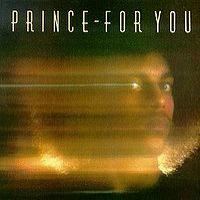

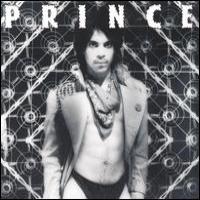



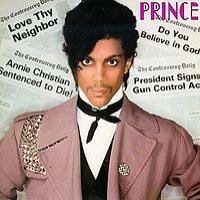

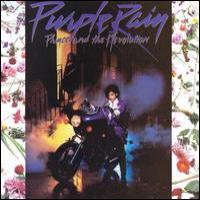



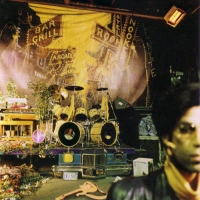







 (1992)
(1992)























